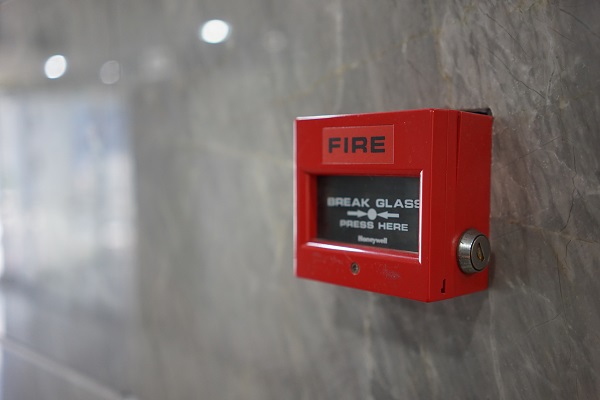What we didn’t know about Fire Safety at Work

Verity and I attended a fire warden training course last week with Metro Safety and we would highly it. It was very practical and informative, but at the same time had everything you would want for a work training day really – including a video from the early ’90s, plenty of cakes and the opportunity to actually have a go with some fire extinguishers. So thank you to Metro Safety and our lovely fire safety coach Mark.
This has inspired this short post with some surprising advice for fire safety at work that you might not have considered:
1. It’s the responsibility of your Landlord as the “Responsible Person” to make sure that your building is risk assessed regularly and that all the appropriate procedures are in place. This includes making sure your fire exists aren’t blocked or locked. If you’re unsure of when your building was last checked, give your landlord a call and ask.
2. You should all know where your fire meeting point is, and you should make sure you let anyone know as part of their induction when they join the team. It should be a short distance away and not directly outside as this should be clear for when the fire engine arrives.
3. Human beings do not behave as you would expect when there’s a fire – it’s worth attending the course to learn about this one, but if you thought people would leave the building automatically when they smell smoke you might be surprised.
4. You should ideally have a fire drill twice a year. And we thought the days of lining up outside without collecting your coat or belongings were over when we left school…
5. You need to have a number of employees trained as fire wardens, dependent on the size of your office. They are then the go-to person who can take care of things like making sure your smoke alarm has batteries, and that you have the right kind of fire extinguisher. In the event of a fire, they make sure everyone is accounted for, including checking the loo and will be the first port of call for the fire brigade to refer to when they arrive.
6. Heavily pregnant women have to leave the building last! I was surprised when a colleague informed me of this, but it is in fact because they can delay the exit of others if they are less able to walk down the stairs quickly, and can more easily be pushed over in a panic. This applies to anyone else who is less able to walk down the stairs, so in a large building, there is often an evacuation safety point where the person can remain and be collected by fire staff. The lift can never be used in an emergency!
7. Even an ordinary door can delay the spread of a fire for a good while. Keep them closed, but make sure your exit is clear and isn’t locked when you’re actually inside the building.
I have a huge amount of confidence in the team at Attic – they have taken a lot of time and trouble to understand the culture and nuances of our business and it shows. I will keep asking them to support us because I know they will deliver a great result – quickly and with style.
